Last week, the head of Israel’s Mossad intelligence agency issued a blunt warning to the Palestinian militants who attacked Israel on Oct. 7
“Let every Arab mother know that if her son took part in the massacre — he signed his own death warrant,” David Barnea said.
He delivered the vow at the funeral of former Mossad Director Zvi Zamir, drawing a parallel with the manhunt overseen by the late spy chief that targeted the Palestinian terrorists linked to the murder of 11 Israeli athletes at the 1972 Munich Olympics.
The campaign to avenge Munich, dubbed Operation Wrath of God, has come to symbolize Israel’s willingness to track down its adversaries no matter where they are. But this time, Israel faces a more complicated, ambitious task as it tries to target a much larger, better organized and armed organization than the Black September operatives from the 1970s. And the political stakes for Israel and the rest of the world are much higher.
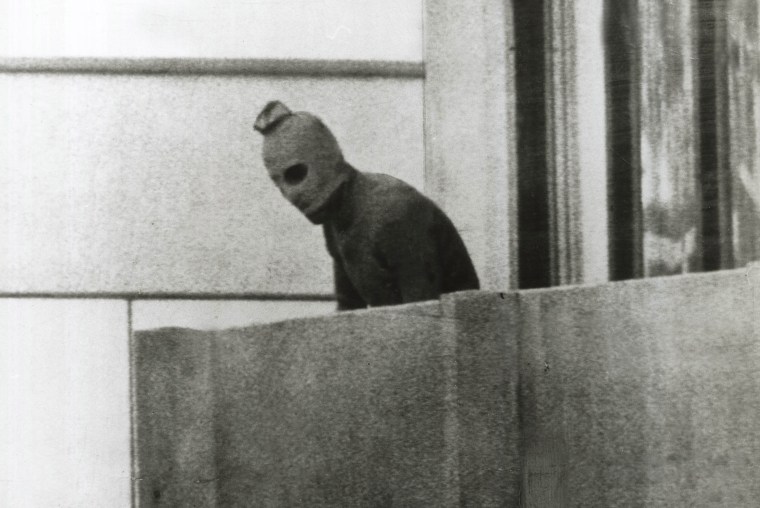
Barnea’s comments at the funeral Jan. 3 came a day after a drone strike killed a senior Hamas leader, Saleh al-Arouri, in the Lebanese capital of Beirut. U.S. officials said Israel was behind the operation, but Israel has not claimed responsibility.
The killing of a key Hamas figure in a heavily guarded neighborhood controlled by Lebanon’s Hezbollah militants signaled that Israel was ready to go after its Hamas adversaries far beyond the battlefield in Gaza, even at the risk of provoking a confrontation with Hezbollah.
“The Hamas leadership who played a role in the Oct. 7 attack almost certainly understand that they are dead men walking and that their end could come at any time,” said Norman Roule, who worked for the CIA for 34 years.
“Whoever conducted this strike not only had reliable intelligence on the target but they had eyes on it … they had dynamic collection that enabled them to follow Arouri as he moved in Beirut. This would be a remarkable achievement for any intelligence service,” said Roule, now a senior adviser to United Against Nuclear Iran, a nonprofit that says it focuses on threats posed by the Islamic Republic of Iran.
On the Beirut street where Arouri was located and killed, local residents told NBC News they had no idea anyone was living in what they assumed was a derelict building. The front of the five-story building was blown off in the attack, with a hole in the ceiling of the apartment where Arouri was killed.
When NBC News recently visited the site of the attack, the street was teaming with traffic and pedestrians.
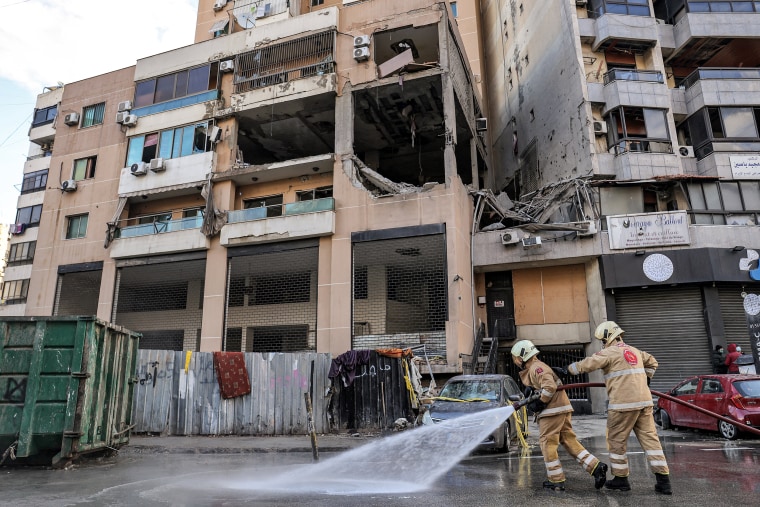
The blast sent debris and shrapnel in a 100-yard radius, hurling an air-conditioning unit into a parked car and then through a shop window, said Wasif Founi, who was standing inside the store at the time.
“We had blessed luck that nothing happened to us,” he said. Founi and others in the neighborhood said they saw body parts strewn along the street after the explosion.
From letter bombs to exploding mobile phones to drone strikes, targeting enemies for assassination has long been part of Israel’s playbook, dating back to the Zionist underground movement before the country’s founding. More recently, Israel has been accused of using operatives to kill multiple Iranian nuclear scientists inside Iran, in one 2021 incident reportedly using a remote-controlled machine gun.
Human rights groups and foreign governments have questioned the morality and legality of Israel’s “targeted killings.” The Israeli government has justified the method as self-defense against terrorist groups, and Israel’s Supreme Court ruled in 2006 that killing Hamas operatives was permissible on a case-by-case basis, as long as the risk to innocent bystanders was taken into account.
Basem Naim, part of Hamas’ political wing based in Qatar, said the group’s leadership fully recognizes it is in Israel’s crosshairs.
“We believe that all the leaders of the movement can be at some time the target of such assassinations,” he told NBC News in an interview in a Hamas office in the capital, Doha. Outside the office, police stood guard.
Naim said he does not think he is immune in Qatar and assumed he was also under threat. He believed his family had been targeted at more than one residence in Gaza. His mother and other relatives were killed in a rocket attack, he said.
As for the killing of Arouri, he said the Hamas senior leader was “a distinguished and unique figure” and for Hamas “one of the important leaders who has good connections with Hezbollah and Iran at different levels.” Arouri’s death, he said, represented “a big loss.”
Arouri was killed in Lebanon, which offers a relatively easy environment for Israel’s intelligence services because of the country’s paralyzed politics and lack of central authority. But tracking down Hamas operatives elsewhere in the Middle East could prove more complicated, for technical and political reasons, former intelligence officers said.
“When you have an organization that is spread out over numerous territories, going after the leadership gets to be pretty difficult,” said Bruce Riedel, a former CIA analyst who focused on the Middle East and South Asia.
Unlike the Palestine Liberation Organization 50 years ago, Hamas does not have a significant presence in Europe, where Mossad was often able to operate without being detected in the 1970s. Hamas’ political headquarters are officially in the Qatari capital, and the group has operatives across the Middle East, including in Turkey.
In contrast to the 1970s operation, digital technology now makes using forged passports and aliases much more difficult. Qatar and the United Arab Emirates in particular have sophisticated electronic surveillance systems that would make a clandestine hit challenging.
“You can’t go anywhere in the UAE or Qatar without being surveilled,” Riedel said.
Apart from its security apparatus, Qatar has played a pivotal role as an intermediary in recent negotiations between Israel and Hamas on the release of hostages and a temporary pause in fighting in Gaza, with Barnea and CIA Director William Burns meeting with Qatari leaders.
Israel would be reluctant to undermine that communication channel and jeopardize any future hostage release, foreign diplomats and former U.S. officials said.
Turkey, a NATO member and another possible diplomatic channel for Hamas or Palestinian leaders in the West Bank, could also be off-limits for a targeted killing.
“Qatar and Turkey definitely have an unofficial immunity in terms of going after Hamas leadership in their territory,” said a person familiar with the Israeli government’s thinking.
“If Hamas leadership travels outside of Qatar or Turkey, they will be much more vulnerable,” the person added.
Publicly, Israeli officials across the government have not ruled out anything when it comes to targeting Hamas leaders. But, privately, government and IDF officials strike a more pragmatic tone and acknowledge Israel is highly unlikely to assassinate anyone on Qatari soil.
Israeli Prime Minister Benjamin Netanyahu’s office declined to comment.
Leon Panetta, former CIA director under President Barack Obama who presided over drone strikes against Al Qaeda operatives in Pakistan and the commando raid that killed the group’s mastermind, Osama bin Laden, said Israel will now face difficult decisions as it goes after Hamas leaders.
“It’s easy to talk about targeted killings but it’s a hell of a lot tougher to make it really happen effectively,” he said.
Electronic surveillance only goes so far, Panetta said. “We had literally hundreds of spies on the ground … because it wasn’t enough just to have drones circling above. We had to make damn sure that whatever target we were looking at was, in fact, the right target,” he said.
Although Israel has earned a reputation for ruthless efficiency and stealth in taking out its enemies, its spies also have made devastating mistakes over the years and suffered embarrassing failures.
In the post-Munich operation, in 1973, Israeli assassins mistook a Moroccan waiter, Ahmed Bouchikhi, for Ali Hassan Salameh, a security aide to PLO leader Yasser Arafat. They killed Bouchikhi in the Norwegian ski resort of Lillehammer and Norwegian authorities soon discovered Israel was behind the killing, leading to the exposure of Israel’s intelligence network across Europe.
In Jordan in 1997, an Israeli team poisoned Khaled Mashal, the then-chief of Hamas’ political bureau in Amman. But two Mossad agents were caught afterward and others had to seek refuge in the Israeli Embassy. To resolve the crisis, Israel agreed to administer an antidote to Mashal and to release several Hamas militants imprisoned in Israel, including the group’s founder, Sheikh Ahmed Yassin. Jordan was incensed.
In 2010, a Hamas commander was found dead in his hotel room in Dubai. The Mossad team that killed him got away, but more than two dozen operatives were identified via security cameras in the hotel. Their fake identities were exposed and their pictures were published and broadcast globally.
Despite mishaps and setbacks, there is still widespread support in Israel for the tactic. In internal government debates, Mossad has at times argued that killing militant leaders saves lives by avoiding an all-out war with far more casualties, according to “Rise and Kill First” by Ronen Bergman, a detailed history of Israel’s assassination operations. But former senior intelligence and military officers also have said that only difficult political compromises with Palestinian adversaries — not covert operations — ultimately will ensure Israel’s security.
Even if Israel is able to take out Hamas’ leadership, it’s unclear what effect it would have on an organization with deep roots in Gaza, an arsenal of weapons and a global network of political and financial support, according to current and former U.S. officials.
Past assassinations of Hamas senior leaders since the 1990s have failed to inflict lasting damage on the group, and in some cases, had unintended consequences.
In 2004, Sheikh Yassin was killed in an Israeli helicopter missile strike outside a Gaza City mosque. Although Israel viewed his elimination as a key objective, analysts now argue that his removal opened the door to Iran forging closer ties with Hamas, as Yassin had kept Tehran at arm’s length.
Hamas will seek to protect its leadership, Naim told NBC News, including Yahya Sinwar, the group’s leader in Gaza. He compared protecting Sinwar with America protecting “someone like Joe Biden.”
Israel is equally determined to find Sinwar, but he said the Hamas leader has not fled, according to his last information. “Not only Sinwar, a lot of other leaders, they are in Gaza,” he said.
In Israel, where the Oct. 7 attack shattered the country’s sense of security, there is mounting political pressure to eliminate the senior leaders of Hamas in Gaza.
But almost three months since it launched an offensive in the Gaza Strip, the country’s military has yet to capture or kill Sinwar, or the head of Hamas’ military wing, Mohammad Deif, or Deif’s deputy commander, Marwan Issa.
“People are not going to feel remotely secure as long as the Hamas leadership is intact, largely intact, and that’s the feeling Israelis have right now,” said Seth Jones, senior vice president at the Center for Strategic and International Studies think tank, who recently returned from a visit to the region.
But Naim said the group was not “a one-man show” and over the years Hamas had proved able to recover from past assassinations of leaders and to grow in strength.
“If we compare the resistance today with the resistance 20 years ago … Hamas and other resistance movements became much … stronger than at the time of Sheikh Yassin and others.”
Mossad veterans openly acknowledge that assassinations are not a magic bullet and never have been, according to Dan Raviv, a former CBS News correspondent and co-author of “Spies Against Armageddon: Inside Israel’s Secret Wars.”
“They admit that everyone that’s been assassinated has been replaced,” he said. “They acknowledge it’s not a solution to the Middle East conflict.”
But they say that Israel, at a minimum, needs to take similar action as it did after the murders in Munich — to send a message to its adversaries, Raviv said.
“They believe Oct. 7 was much bigger and truly deserves a massive response at so many levels,” he said.
Mossad’s chief, Barnea, has vowed to pursue all those involved in the Oct. 7 assault, “directly or indirectly,” including “planners and envoys.”
“It’ll take time, as it took time after the Munich massacre, but we will put our hands on them wherever they are,” he said.

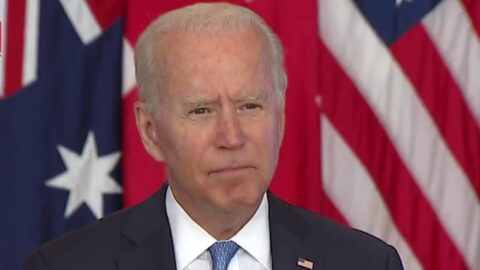
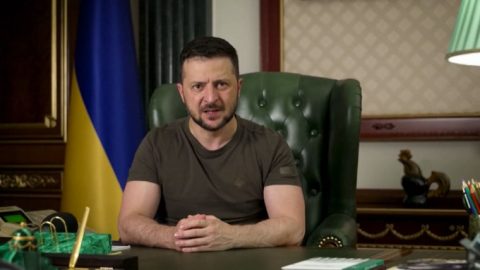
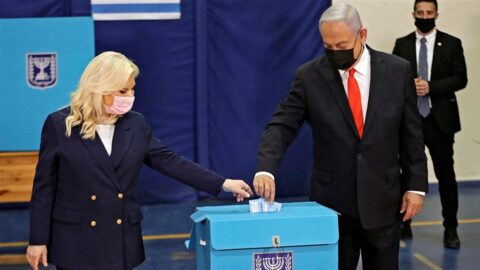
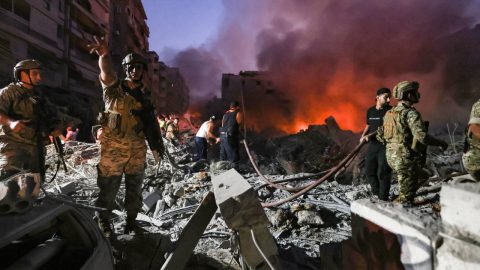

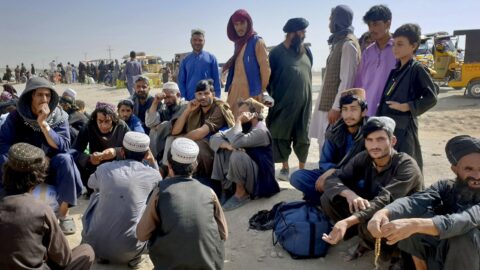

Recent Comments